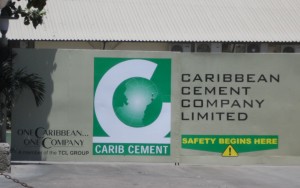Frequent interruption to trading stocks on the Jamaica Stock Exchange caused by the Circuit Breaker rule that shuts down activity in a company’s stock for an hour is frustrating for investors once the price moves by 15 percent or more from the closing price of the previous trading session.
 Introduced by the JSE in the 1990s based on some investors’ complaints about large swings in the price movements of some stocks, the circuit breaker has not been effective in safeguarding investors’ interest by allowing information to flow to investors as to the reasons for sharp price movements. In place for more than 25 years, the mechanism serves no useful purpose, hinders trading and have not resulted in the presentation of new information for stocks so halted to justify stopping in trading.
Introduced by the JSE in the 1990s based on some investors’ complaints about large swings in the price movements of some stocks, the circuit breaker has not been effective in safeguarding investors’ interest by allowing information to flow to investors as to the reasons for sharp price movements. In place for more than 25 years, the mechanism serves no useful purpose, hinders trading and have not resulted in the presentation of new information for stocks so halted to justify stopping in trading.
In the past, this publication made suggestions to modify the system as it operates currently, to simplify it and allow for fewer losses in trading time for stocks subjected to the circuit breaker rule. There is no move by the JSE to implement changes since the price limit increase to 30 percent. It appears that the JSE does not seem to get it. It is better to improve what currently exists to help boost business rather than seeking other businesses.
If the rule is retained, keep it simple that all involved in the market can easily understand.
For example, if the maximum daily price movement is 30 percent, let that be the figure so that anyone can compute what it will be. There is no logic to state that prices can move by 30 percent, which happens in some cases and not in others. There should be no difference to the daily maximum price, whether it gets there in one movement or more than one. Currently, a 15 percent price movement triggers a re-computation of the maximum price of less than 30 percent. If a stock’s reference price starts the day at $10, then the day’s maximum price would be $3. Every investor can compute this. There is no reason to adjust the maximum if it trades initially at $12, with the maximum price for the day dropping to $12.65?
 The second modification to the circuit breaker rule is reducing the time that stocks are frozen. An hour break is far too long and prevents prices from moving above 15 percent within an hour of the market’s close.
The second modification to the circuit breaker rule is reducing the time that stocks are frozen. An hour break is far too long and prevents prices from moving above 15 percent within an hour of the market’s close.
If there is a need for the circuit breaker, why not break for 15 minutes instead of an hour so that trading can take place more freely. The Stock Exchange still has the power to halt trading in any stock or the market if they consider it prudent.
The Circuit Breaker rule. No stock should trade +/-15% from the close price or the effective close price at the market’s opening. The effective close price is determined whenever the closing bid is greater than the close price or whenever the closing ask is less than the close price. If the Circuit Breaker is triggered, the security will be halted for an hour to allow for the release, circulation and absorption of any relevant market news and a cool-down period while investors consider their options. After the hour, the security will be released for trading and the new reference price, which is a simple average of the trigger price and the close price, will be used to determine the trading range for the remainder of the day. The trade price that triggered the Circuit Breaker should not be +/-15% outside of the original prescribed price band. The stock will not be allowed to trade +/- 15% of the new reference price.


 With profits more than doubling in 2016, the 2017 revenues up 75 percent in May and the preliminary profit up approximately 150 percent, the company is actively seeking additional space to expand the business.
With profits more than doubling in 2016, the 2017 revenues up 75 percent in May and the preliminary profit up approximately 150 percent, the company is actively seeking additional space to expand the business.




